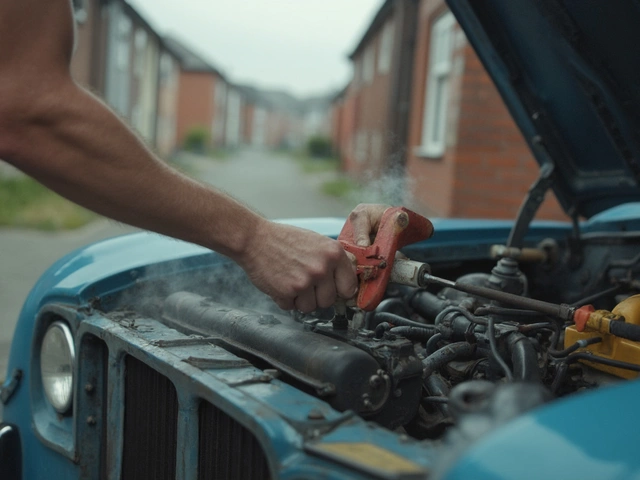Poor Fuel Economy? Quick Ways to Get More Miles Out of Every Gallon
If your car feels thirsty, you’re not alone. Most drivers notice a drop in mileage at some point, and the good news is that many of the causes are simple to fix. A few minutes in the garage or a change in driving habits can add noticeable savings to your fuel bill.
Common Causes of Low MPG
Bad tires are a hidden drain. Under‑inflated wheels create extra rolling resistance, forcing the engine to work harder. Check the pressure once a month and keep them at the manufacturer’s recommended level. Next up are dirty or cheap air filters. A clogged filter restricts airflow, making the engine burn more fuel to get the same power. Swapping a standard filter for a premium one can improve combustion and shave off a few percent of fuel use.
Faulty spark plugs are another silent culprit. Worn plugs cause misfires, rough idling, and a drop in power, all of which force the engine to use extra fuel. If you notice a pinging sound or sluggish acceleration, have the plugs inspected. The fuel pump can also affect economy; a weak pump may not deliver enough fuel at the right pressure, leading the engine to run rich and waste fuel.
Finally, think about your driving style. Aggressive acceleration, high‑speed cruising, and frequent short trips keep the engine in inefficient zones. Even something as small as cruising at 55 mph instead of 70 mph can boost mileage dramatically.
Simple Steps to Improve Fuel Economy
Start with the basics: keep your tires at the right pressure, replace old air filters, and change spark plugs when they show wear. These three actions often give a 2‑5% improvement without costing much.
Next, lighten your load. Extra weight in the trunk or roof rack creates drag. Remove unnecessary items and store bulky boxes inside the car instead of on top. When you’re parking, try to find a spot that lets you avoid long idling periods—turn off the engine if you expect to be stopped for more than a minute.
Adjust your driving habits. Smooth acceleration, gentle braking, and maintaining a steady speed are key. Use cruise control on highways to keep engine RPMs steady. If you own a manual transmission, shift up early and avoid revving the engine higher than needed.
Regular maintenance matters too. Schedule routine checks for the fuel system, especially if you suspect a bad fuel pump. A quick pressure test can reveal issues before they sap your mileage.
Finally, consider your fuel choice. Higher‑octane gasoline doesn’t automatically improve efficiency unless your engine is tuned for it. Stick to the fuel grade recommended in your owner’s manual to avoid unnecessary expense.
By tackling these easy fixes, you’ll see a real boost in fuel economy and spend less at the pump. Keep an eye on the numbers, stay on top of maintenance, and enjoy smoother, cheaper rides ahead.
 2 July 2025
2 July 2025
Bad Spark Plugs: What Really Happens to Your Engine
Curious what happens when spark plugs go bad? Discover the real-world symptoms, the science behind engine trouble, and practical tips to diagnose and fix it fast.
Latest Posts
-

Can You Fix a Radiator Without Replacing It? Real Solutions for Car Troubles
-

How to Tell If Your Car Is Low on Oil: A Practical Guide
-

Does Changing Spark Plugs Improve Your Car's Performance?
-

The Consequences of Neglecting Your Car's Oil Change
-

Spark Plug Life Expectancy: How Long Do They Really Last?
Tags
- car maintenance
- engine oil
- spark plugs
- brake pads
- engine performance
- vehicle maintenance
- spark plug replacement
- windshield wipers
- fuel pump
- suspension parts
- clutch replacement
- oil change
- clutch kit
- car suspension
- car performance
- air filters
- car radiator
- exhaust systems
- fuel pump replacement
- engine misfire

0